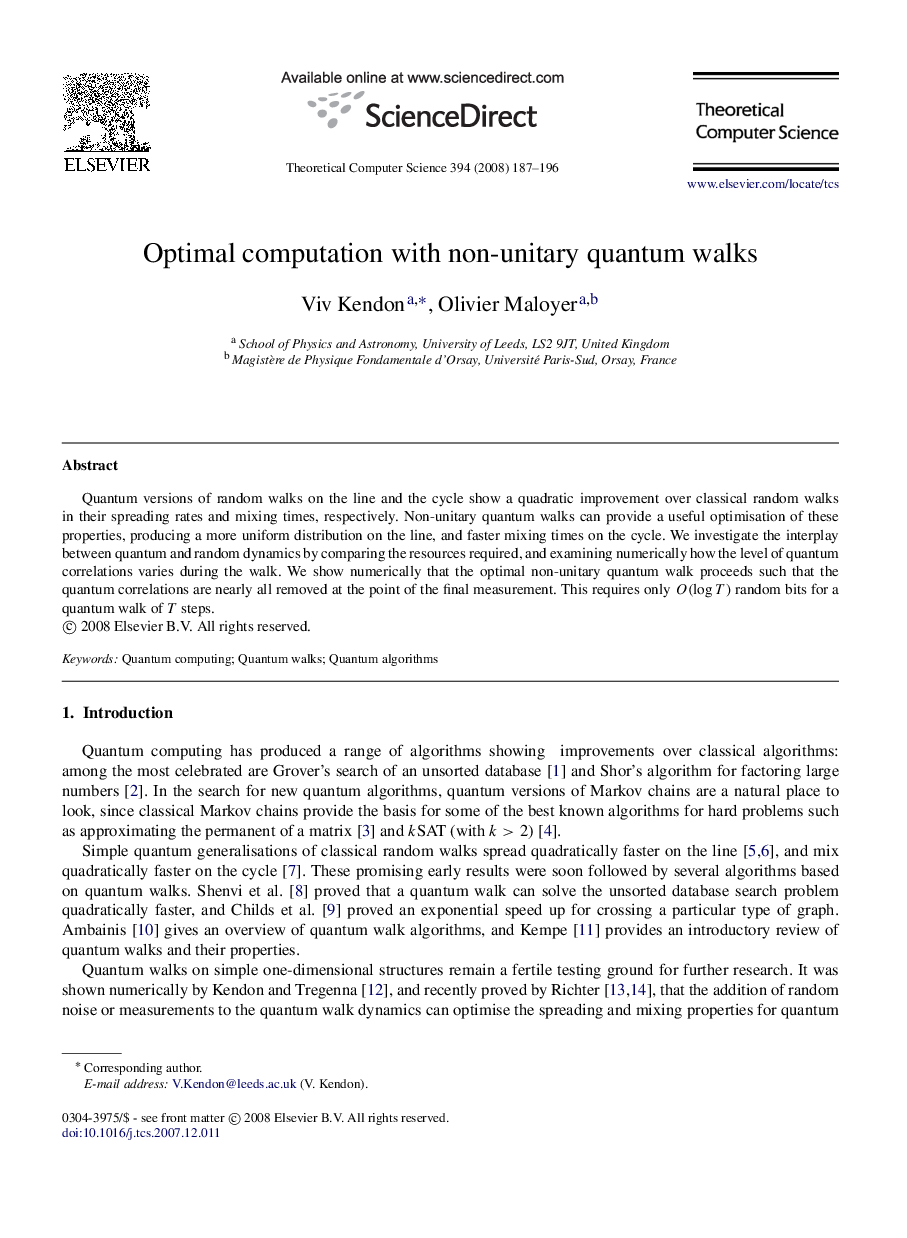| Article ID | Journal | Published Year | Pages | File Type |
|---|---|---|---|---|
| 436470 | Theoretical Computer Science | 2008 | 10 Pages |
Quantum versions of random walks on the line and the cycle show a quadratic improvement over classical random walks in their spreading rates and mixing times, respectively. Non-unitary quantum walks can provide a useful optimisation of these properties, producing a more uniform distribution on the line, and faster mixing times on the cycle. We investigate the interplay between quantum and random dynamics by comparing the resources required, and examining numerically how the level of quantum correlations varies during the walk. We show numerically that the optimal non-unitary quantum walk proceeds such that the quantum correlations are nearly all removed at the point of the final measurement. This requires only O(logT) random bits for a quantum walk of T steps.
